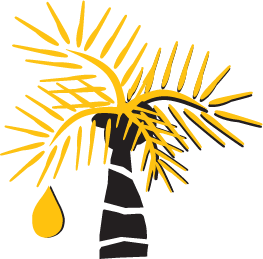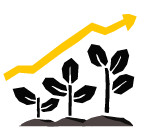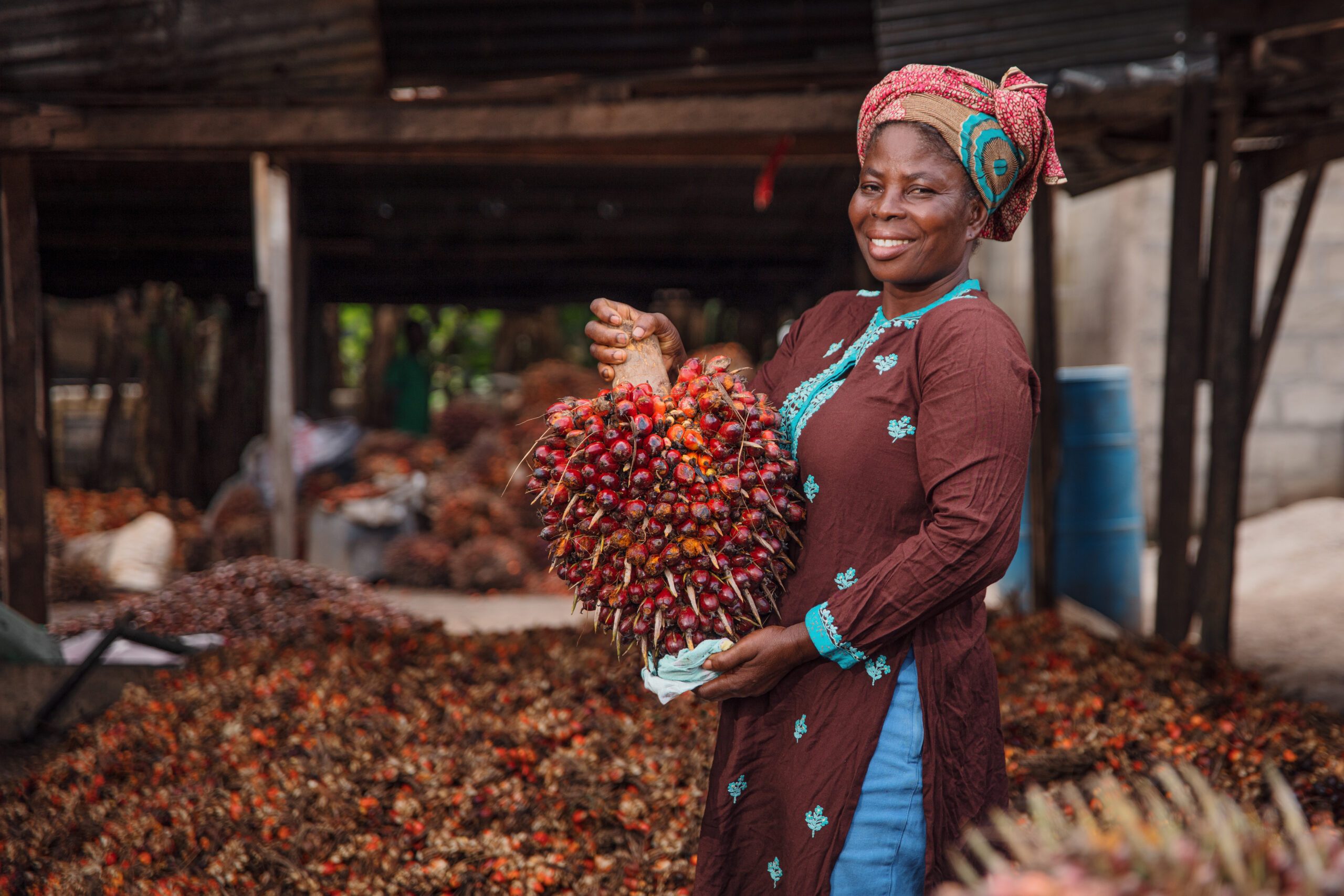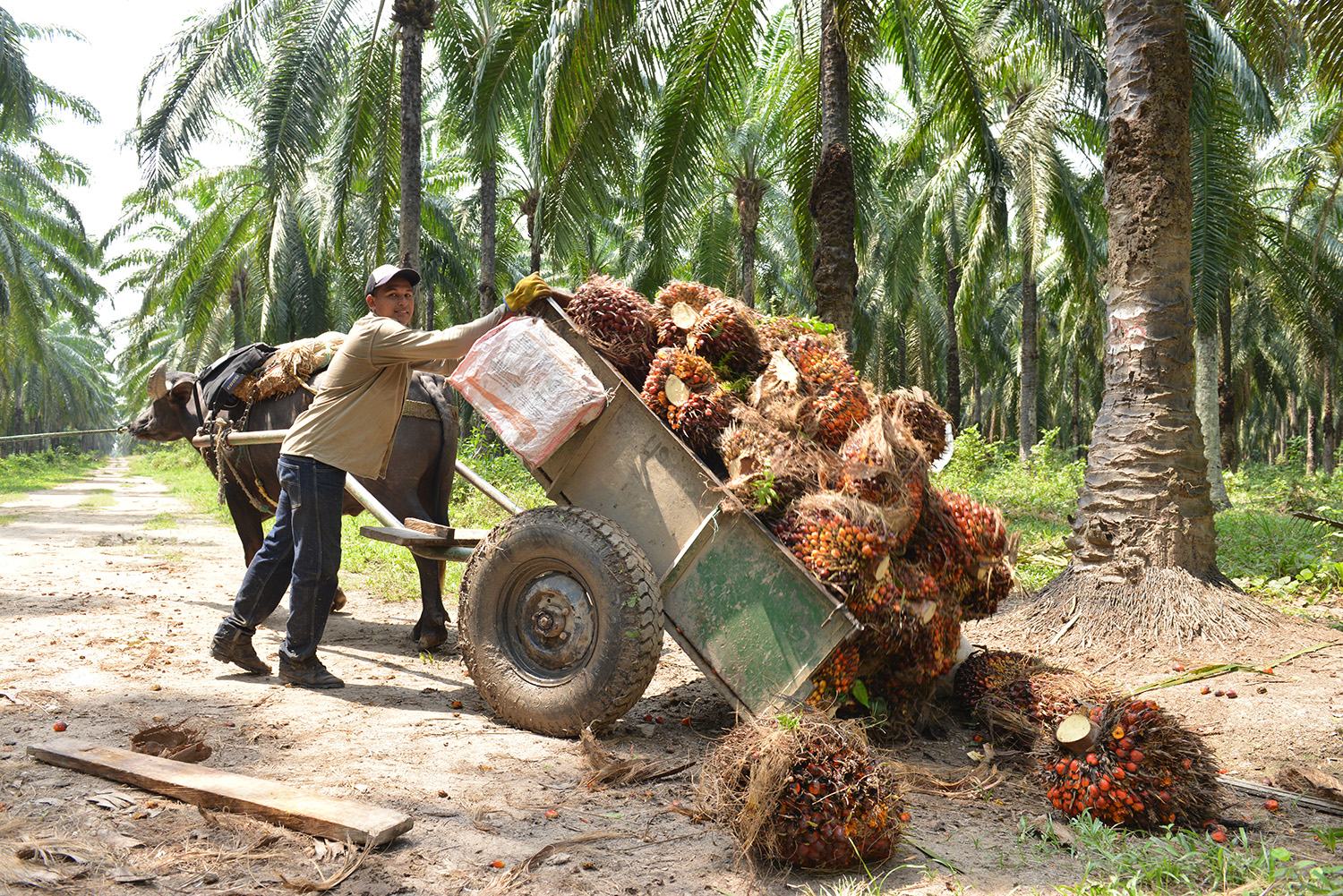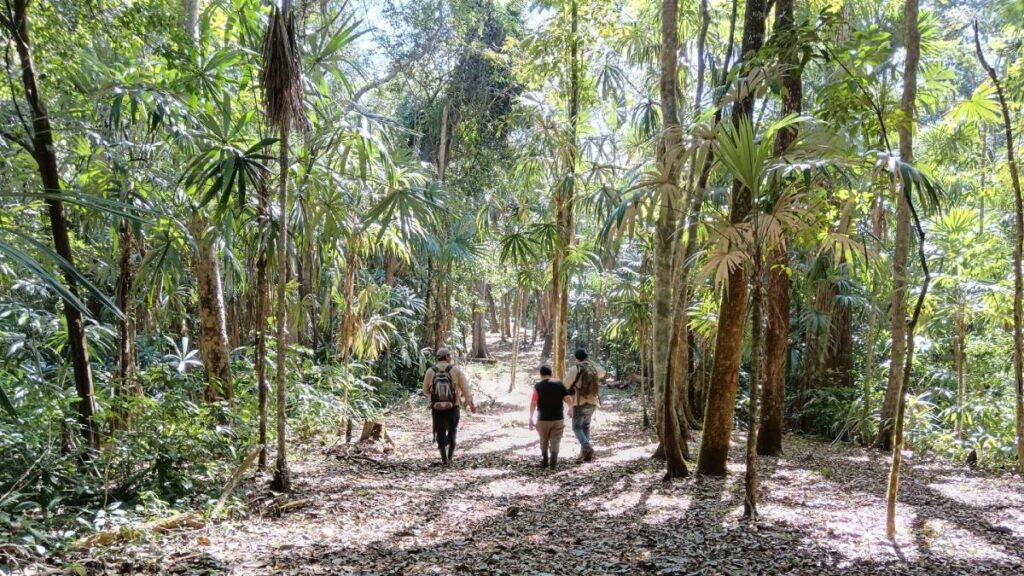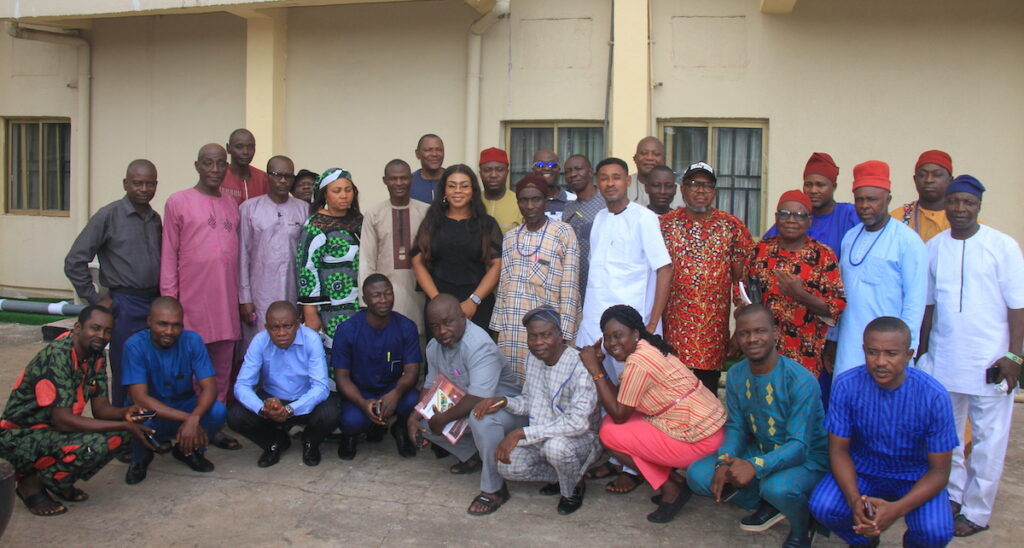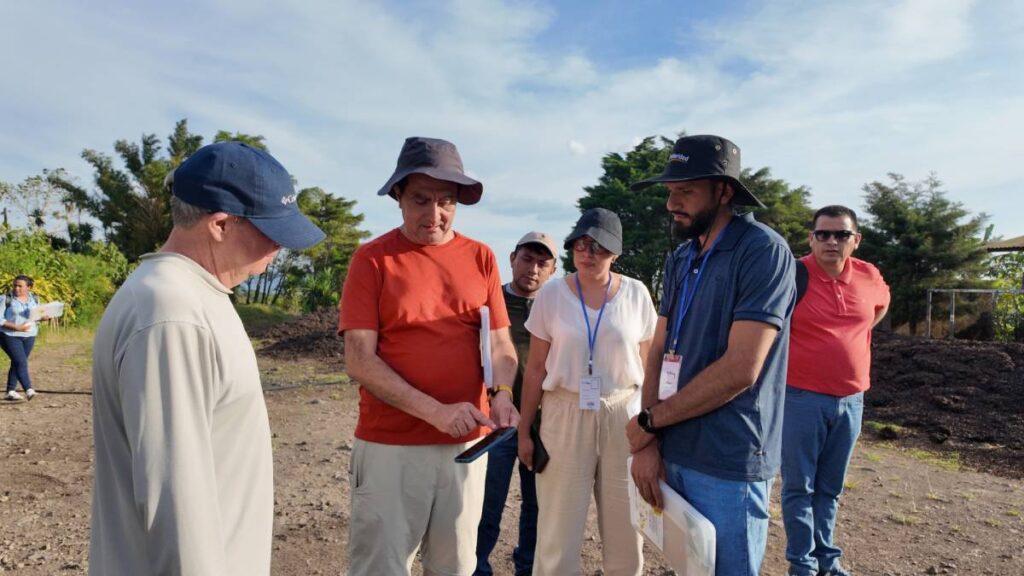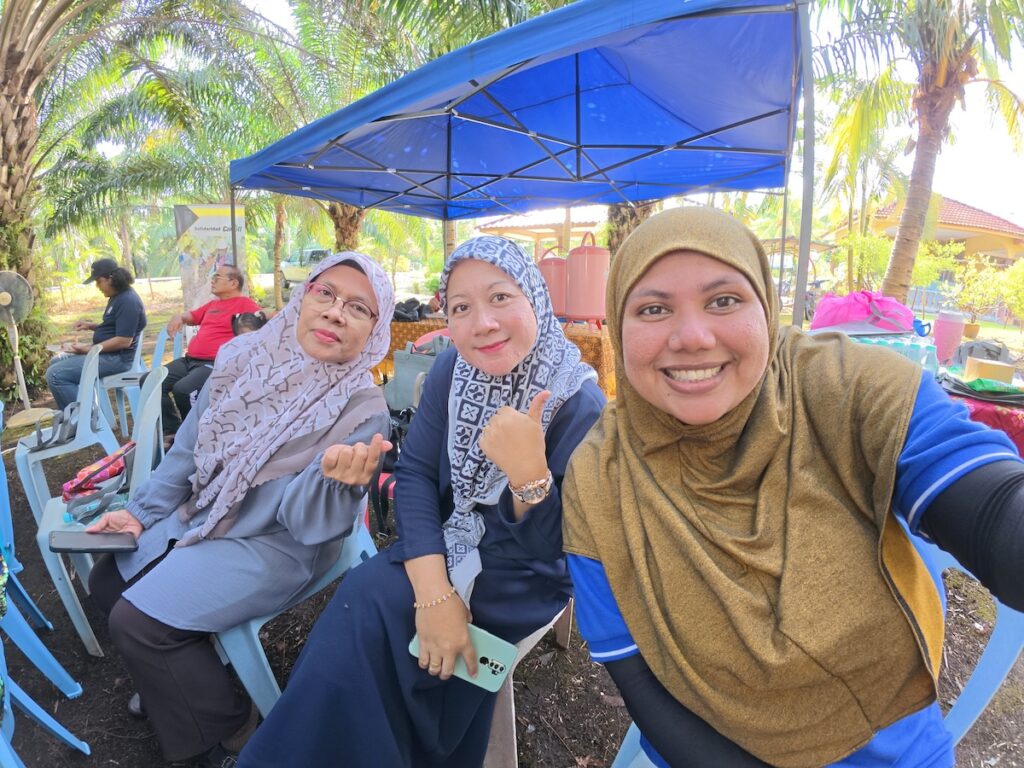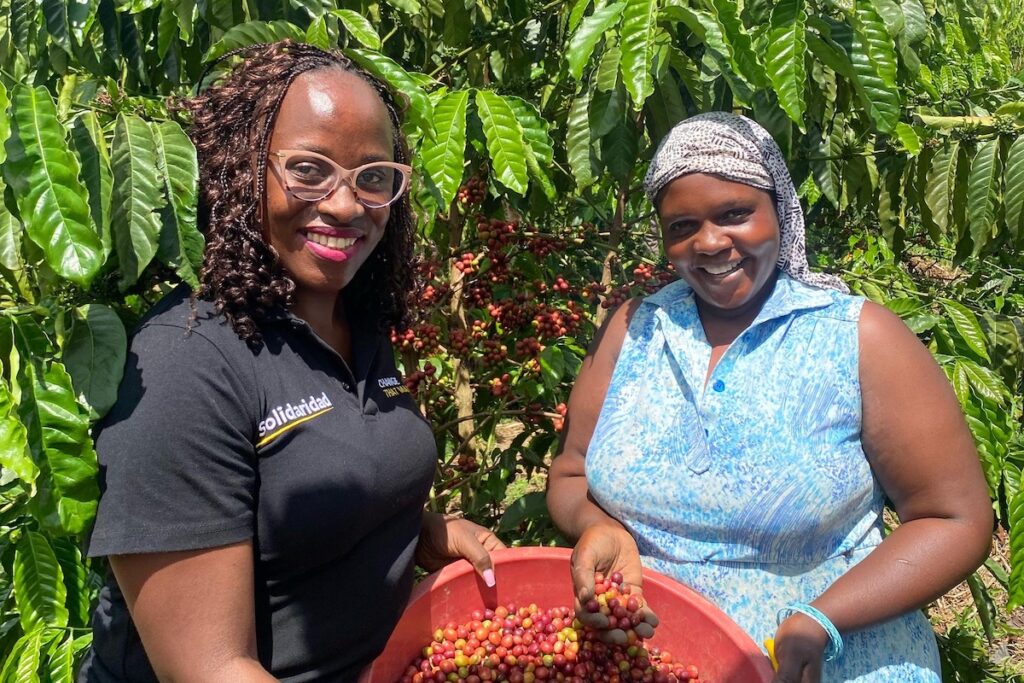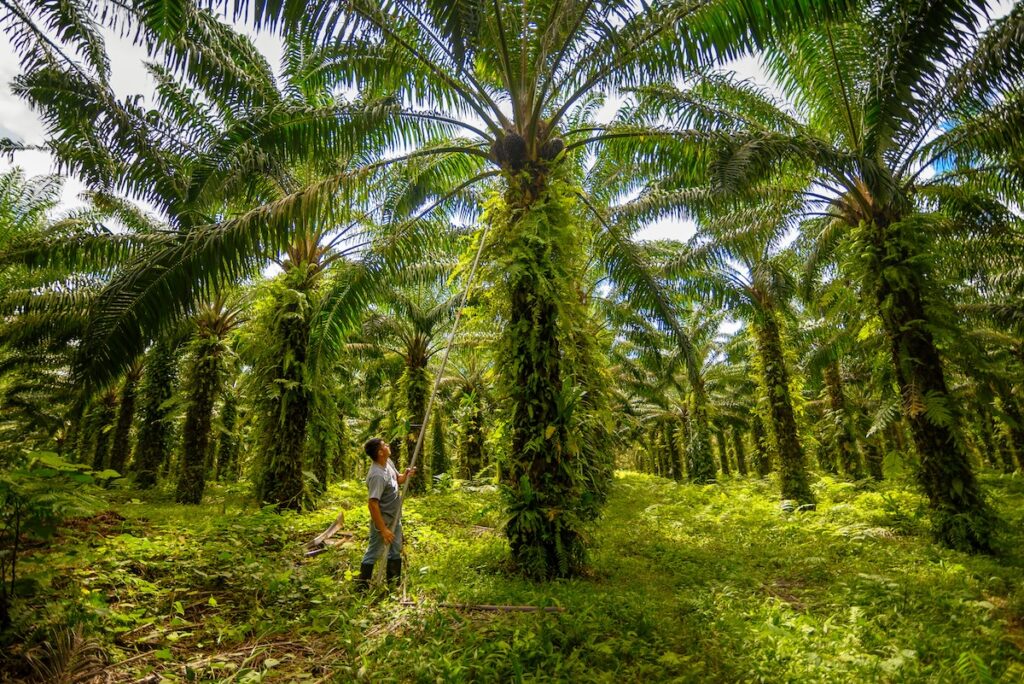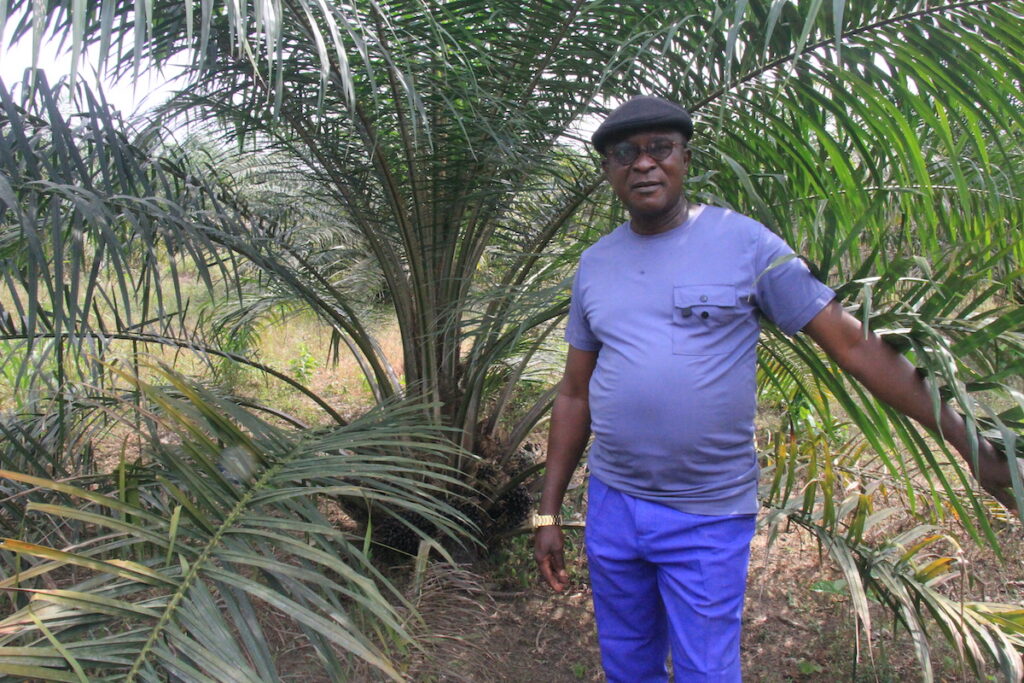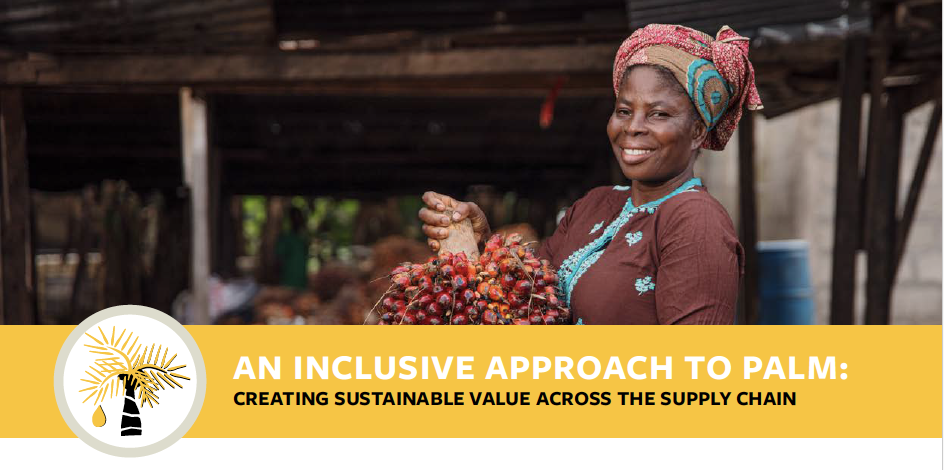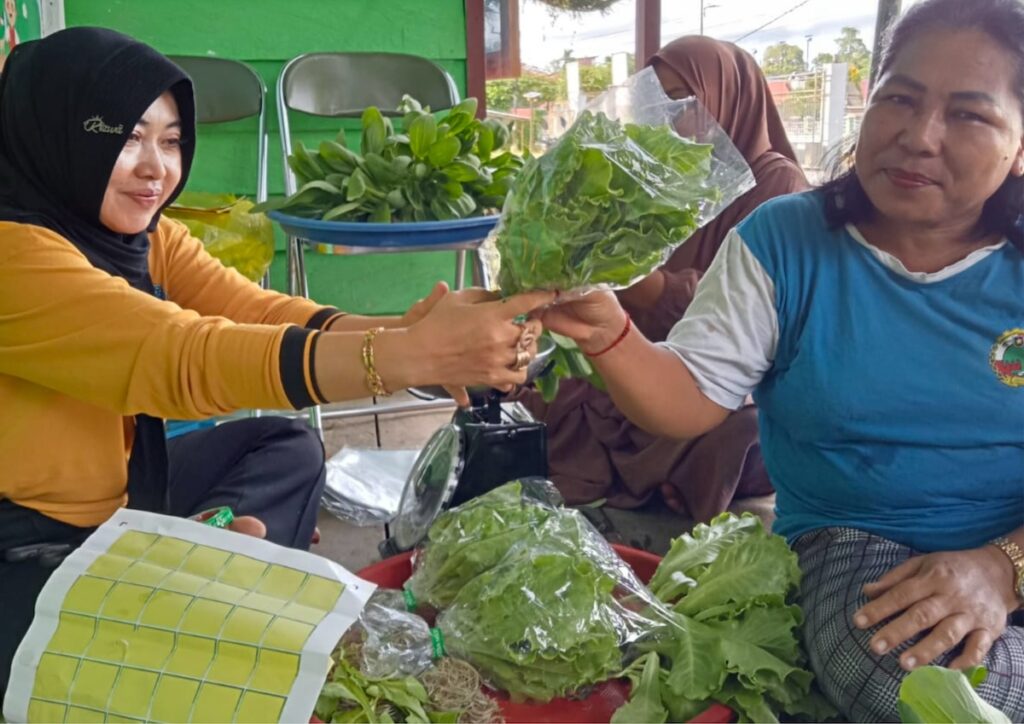
Challenges
High environmental and human costs
Palm oil is an extremely efficient oil to produce. However, its production is often associated with high environmental and human costs.
“[The Roundtable for Sustainable Palm Oil] RSPO has really brought our social performance to a higher level. Implementing RSPO inspired us to go out and talk to surrounding communities.”
Ms. Suyapa, Sustainabiliyy Honduras Agrotor, Honduras
Solutions
Bringing stakeholders together
Production challenges in the oil palm sector, such as poor farming practices and land mismanagement, need focused solutions. We seek country- and context-specific solutions for smallholders, mills, and companies by bringing stakeholders together and supporting the implementation of sustainable practices.

Silvanus Seyron, palm oil smallholder, Farmer Field School, West Kalimantan, Indonesia
“Through the training, I learnt about the management standards for oil palm oil plantations in relation to crop maintenance and fertilizer application. Now, I’m saving more money from my plantation!”
Achievements
Advancing with the producers
The implementation of a gender policy for the Oil Palm Development Association in Ghana led to a threefold increase in the number of women chosen as executives for the association.
In Latin America, we supported the first group of 41 independent small-scale producers in Colombia (Entrepalmeros) and Peru (APROMAN) in their efforts to become RSPO certified.
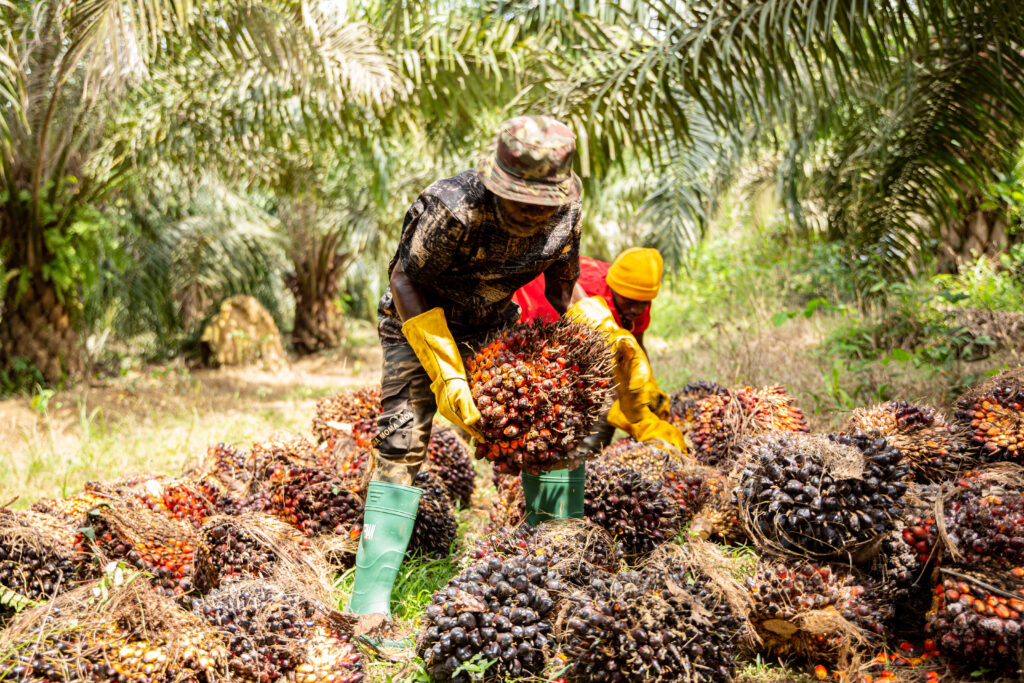
Moving forward
We continued to lead dialogue spaces to address zero deforestation, decent work and RSPO certification. We worked with multiple stakeholders to support the conservation of more than 69,933 hectares of Guatemalan natural reserves. We provided technical assistance to 3,592 Mexican smallholders, and we raised 2,017 Honduran workers’ awareness about decent work.
We raised more than 520,000 seedlings, out of which 479,881 were distributed for replanting, reclamation and promoting livelihood diversification. In Ghana, more than 2,800 oil palm farmers were trained in climate-smart agriculture. In Nigeria, 327 trained artisanal mill operators improved their milling practices.
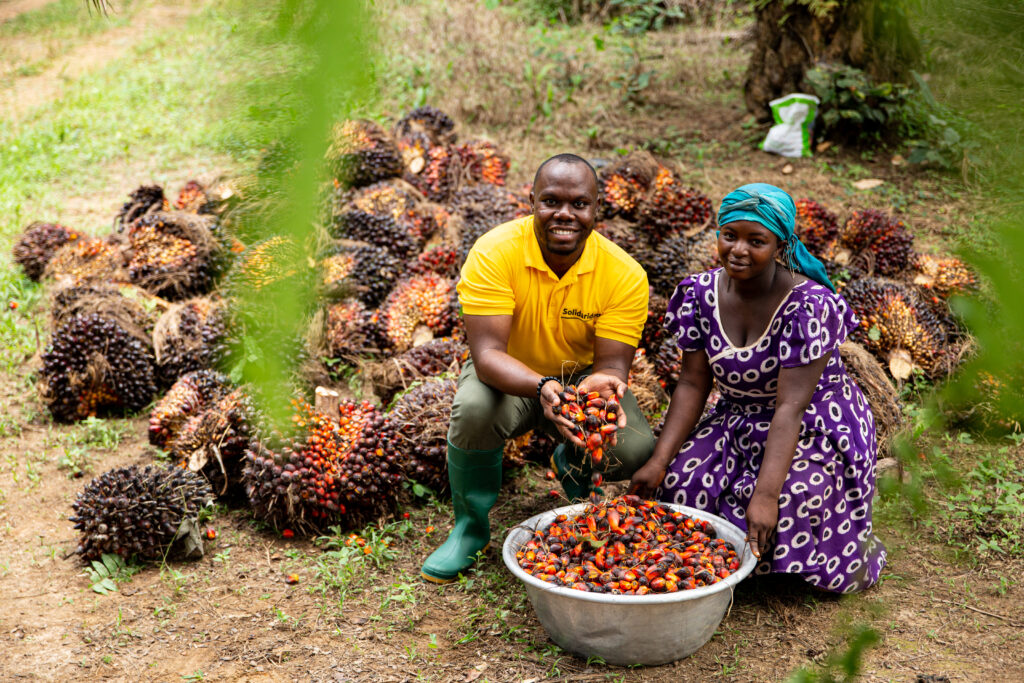
Extension Solutions
Solidaridad’s digital application, Extension Solution, was adopted by Fedepalma, a sector organization, to assess their Sustainability Index among 3,000 palm producers across Colombia. In Peru, we concluded the first stage of our partnership with Alicorp, the country’s largest retailer, to provide training to 401 of their producers and 136 of their workers on the implementation of RSPO standards.
In West Africa, over 1,250 artisanal mill operators and processors received training to improve the quality and quantity of palm oil. 187,000 out of 223,000 improved seedlings raised were distributed. In Liberia, we supported the RSPO National Interpretation, which was endorsed and declared effective by the Board of Governors.
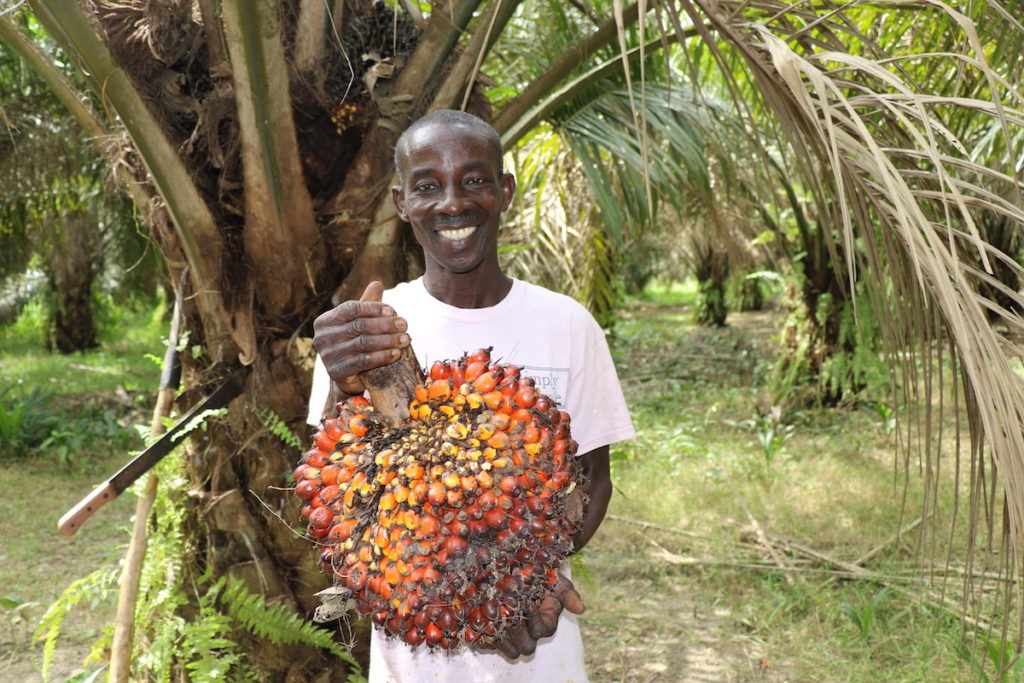
Collaboration for results
In West Africa, more than 12,400 trained oil palm farmers are applying best management practices on 26,996 ha of farmland. In Liberia, the average weight of fresh fruit bunches increased from 8.66 kg to 10.77 kg while yield increased from 1.17 tons/ha/yr to 9.27 tons/ha/yr. In Sierra Leone, 7,424 smallholder farmers have been identified for RSPO certification. In Central America, we worked with 9 lead auditors and 50 public, private and civil society actors in three countries to drive the RSPO Principles & Criteria National Interpretations. Guatemalan and Honduran working groups collaborated remotely in a total of 57 webinars and led public consultations through the MAPA online platform. Nicaragua began with 15 workgroup meetings.
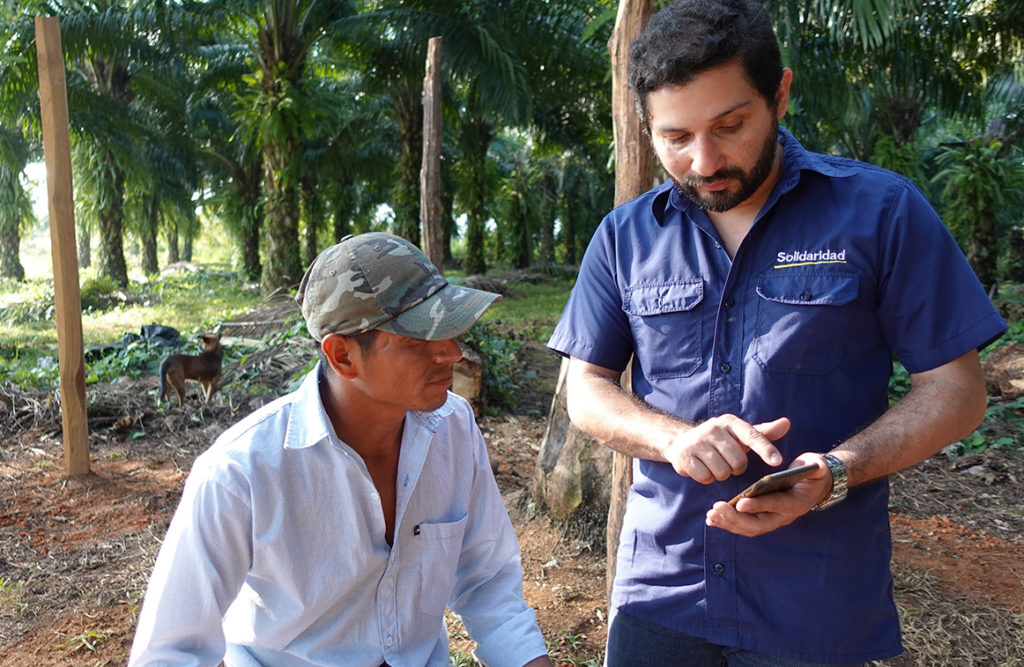
Climate-smart interventions
In Indonesia, the Farmer Field School programme engaged 48 farmer groups, addressing forest preservation, renewable energy, clean water supply, and green villages. In West Africa, four multi stakeholder platforms were supported in Côte d’Ivoire, and advisory committees were established in Nigeria and Ghana to guide implementation of climate-smart oil palm interventions. Meanwhile, the Mesoamerican Palm Oil Alliance (MAPA) facilitated significant sustainability achievements throughout Central America. Key partnerships were launched in South America to increase use of sustainable methods and assess sustainability gaps in the supply chain.

Creative partnerships
Our corporate partner Henkel launched a new beauty care product line ‘Nature Box’ with Solidaridad’s logo on the pack, and the tagline: ‘We support local farmers’. Since 2012 Henkel has invested in seven Solidaridad palm oil improvement projects in Indonesia, Ghana, Nigeria, Colombia, Mexico, Nicaragua and Honduras. Together we’ve reached nearly 25,000 farmers with a combined area of nearly 300,000 hectares. Overall an average yield increase of 16% has been reported since the collaboration started.

A bold commitment
In Colombia, palm oil producers and industry leaders have committed to eliminating deforestation from their palm oil supply chains. Colombia is the first country to present a national agreement on deforestation. In West Kalimantan Indonesia, 1,885 farmers were trained in good agricultural practices and 1,891 farmers were trained in financial literacy. In the village of Sepulut, a total of 14,16 hectares of communal forest was mapped and a regent decree was secured to ensure the forest’s protection.

Investments see results
Smallholders’ investment in implementing best management practices in Ghana led to more than tripling of yields, proving that with the right investment West Africa could become self-sufficient in palm oil production. In Asia, national and regional sustainability initiatives for large producing and consuming countries gained momentum in China, India and Malaysia. In Central America, national palm oil sectors are starting to take significant steps towards RSPO certification.

Tripling yields
After three years of co-investment with farmers, Solidaridad’s SWAPP palm oil programme has reported a tripling of smallholder yields in Ghana. In China, the sustainable palm oil working group was launched to stimulate sustainable sourcing in one of the world’s biggest markets.

Stakeholder collaboration
Solidaridad launched the Asian Sustainable Palm Oil (ASPO), a multi-stakeholder platform to support and promote sustainable palm oil production and consumption in the main Asian markets of India, China and Indonesia.

Scaling up
Sustainable West African Palm oil Programme (SWAPP) launched with the help of a 12 million EUR grant from the Dutch Embassy in Ghana. Solidaridad and RSPO supported the scaling up of sustainable palm oil production in Colombia and Honduras in collaboration with 13 local plantation companies, industry associations and leading processors of palm oil.

Creating connections
Solaridad developed its first palm oil supply chain programmes, linking major brands and companies, such as Johnson & Johnson and CONO, with palm-oil smallholders working on RSPO compliance.
Thanks to a 30 million EUR grant from the Dutch government, Solidaridad launched its cross-commodity Farmer Support Programme together with five different roundtables, including the RSPO, which will support 400,000 smallholders by the end of 2015.

Aiming high
The Dutch Task Force for Sustainable Palm Oil set a target of using only RSPO certified palm oil in Dutch food, cosmetics, and animal feed industries by 2015.

Stimulating better practices
Solidaridad began its Palm Oil Producer Support Initiative (POPSI) to stimulate better management practices among small palm oil farmers and assist them with RSPO certification.

First certification
The first palm oil plantation was RSPO certified

RSPO founding
Roundtable on Sustainable Palm Oil was (RSPO) founded.


